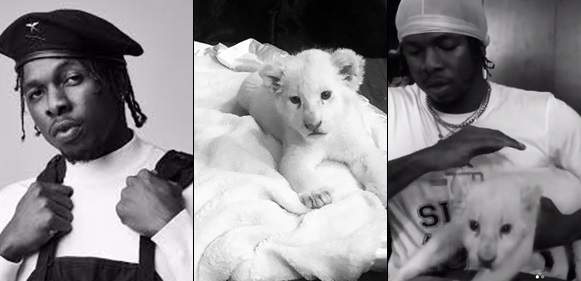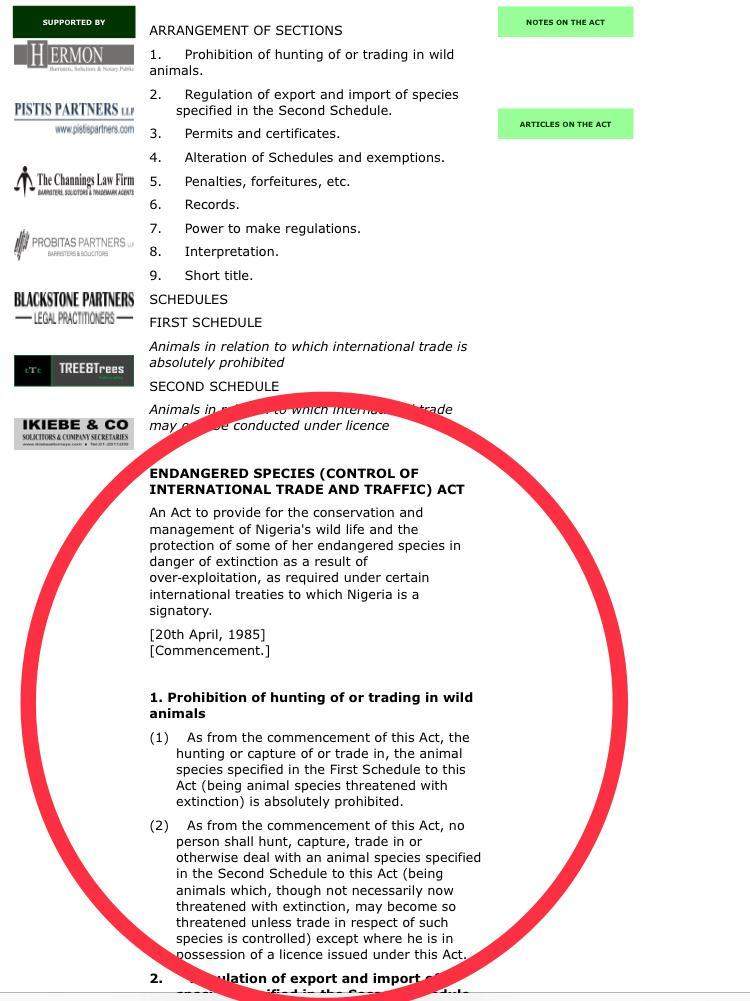
The unusual choice of pet sparked conversations online as commentators wondered what informed his decision get a lion, among all other animals that are actually domesticated.
Although it is unclear if Runtown bought the cub or was given as a gift, findings from NET reveal that the animal is a rare Brazilian Breed White Lion priced between $50,000- $100,000.
Further research, however, reveals that the singer may run into trouble under the law which protects endangered species and wild animals.
According to the Endangered Species Control Act of 1985 - the legal code which provides for the conservation and management of Nigeria's wildlife and the protection of endangered species in danger of extinction as a result of over‐exploitation, as required under certain international treaties to which Nigeria is a signatory.
The law reads in part:
(1) As from the commencement of this Act, the hunting or capture of or trade in, the animal species specified in the First Schedule to this Act (being animal species threatened with extinction) is absolutely prohibited.
(2) As from the commencement of this Act, no person shall hunt, capture, trade in or otherwise deal with an animal species specified in the Second Schedule to this Act (being animals which, though not necessarily now threatened with extinction, may become so threatened unless trade in respect of such species is controlled) except where he is in possession of a licence issued under this Act.
The law also states the criteria that must be followed if anyone desires to acquire a wild animal.
No person shall import any species specified in the said Second Schedule except where he has first obtained an import permit or are export certificate for that purpose. No import permit shall be issued under this section unless the Minister is satisfied that‐
(a) the import shall be for a purpose which is not detrimental to the survival of the specimen
(b) the specimen is not to be used for a primarily commercial purpose; and
(c) the proposed recipient of a living specimen is suitably equipped to house and care for it.
Finally, the law specifies suitable punishment for anyone that defaults stating that any person who, in contravention of the provisions of this Act, trades in, or is in possession of or otherwise deals with a specimen specified in the First and Second Schedules to this Act, shall be guilty of an offence and liable on conviction‐
In respect of any specimen under the First Schedule to this Act, a fine of N1,000 for a first offence and for a second and subsequent offence to imprisonment for one year without the option of a fine; and where a person is convicted of an offence under subsection (1) of this section, the court may‐
(a) order the forfeiture of any specimen which is the subject of such prosecution;
(b) make such orders (including the upkeep of live specimens at the expense of the person so convicted) as the court may deem fit.


















Comments